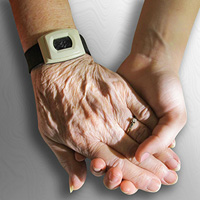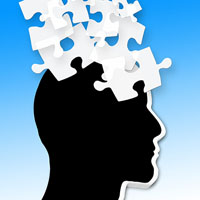Promoting And Maintaining Independence Whilst Caring For The Elderly
Sometimes, when caring for an elderly relative, it can be hard to know what to do for the best. If you are a caregiver, you are generally and solely responsible for the health of the person under your care, which makes it hard to make decisions that concern their welfare. However, when that person is a member of your family it becomes even harder to deal with. You have known that person inside out for most of your life and so it is easy to remember what sort of person they were before mental or physical disability kicked in. That may actually cloud your judgement. One thing that shouldn’t be hard for you to decide upon is their independence. Whether a family member is physically or mentally disabled, you should always try to promote their independence as far as possible.
Where caring for the elderly is concerned, there are two techniques relating to their independence. The first is promotion and the second is maintenance. You should do all you can within your power to promote and/or maintain the independence of any elderly person in need of care. Promotion of independence is largely encouraging them to do as much as they can for themselves, even if it is met with reluctance or downright stubbornness. Maintenance of independence is making sure that any willingness to do something for themselves is encouraged and that they are put in a position to follow through with that willingness.
Maintaining and promoting independence can give an elderly person a sense of achievement and can even prevent them giving up on life completely. They are not totally dependent on one person in their own eyes then because they can still do something for themselves, even if it is just walking a few steps or doing the washing up. Even if they have to be supervised, this will not detract from their achievement. If someone is having a caregiver do absolutely everything for them then they will lose the ability to do anything for themselves, and in extreme circumstances it can lead to a reaction against the caregiver. Feelings of helplessness and futility can cause rebellion and even violence as a result of their frustrations, and that in turn will then be focused on the person closest to them – you!
The nature of independence is largely dependent on the nature of an individual’s disability. If someone is physically disabled then you should do all you can to promote activities that they can carry out, like helping with the shopping, writing letters or making calls. If an individual is mentally disabled then washing up, cutting his or her own dinner or going to the toilet alone may be in order. Obviously this varies from person to person because it is necessary to assess what they are capable of before trying any of these things. The last thing you want is to put them in danger of any sort. Alternatively, trying these actions under supervision could help you to decide, especially if you have no previous frame of reference within the world of caring.
The promotion and maintenance of independence is one of the most important aspects of caring, regardless of who it is that you are looking after. It can form the basis of your relationship with the person under your supervision and they will appreciate it, even if they reluctantly carry out the tasks that you set them. A refusal to comply may lead to worse than actually coaxing them into doing it ever could. Persuasion skills do come in useful in this instance so you have to know what makes the person you are looking after tick. In order to be a good carer, you have to learn to hold back a bit and not take over. If you work via the philosophy of promoting independence then you will not go far wrong and everything else will just slot into place.








